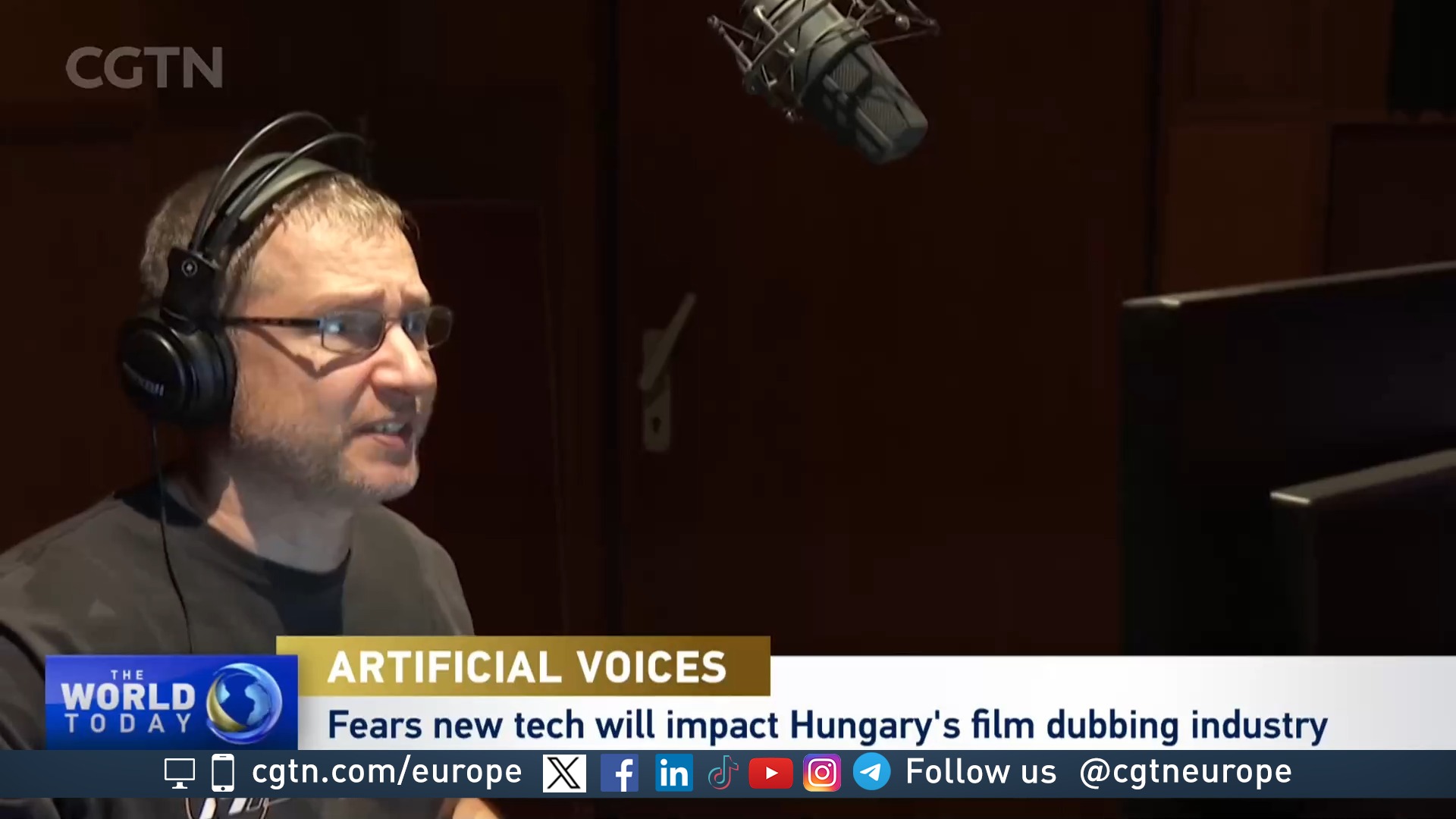02:55

Hungary's thriving film dubbing industry, among the largest in Central and Eastern Europe, provides employment for thousands of professionals who lend their voices to movies, TV shows, and documentaries. However, with the growing influence of Artificial Intelligence (AI), voice actors are becoming increasingly concerned about the potential replacement of their roles by artificial voices.
Renowned voice actor Daniel Hamvas, who has voiced numerous characters in Hungarian-dubbed content over the years, now leads the Hungarian Dubbing Workers Union. He is at the forefront of the battle to protect the livelihoods of his fellow professionals against the encroaching threat of automation. Hamvas expressed their concerns, saying: "Right now we are just as scared as when COVID-19 arrived; we don't know what to expect."
READ MORE
Meta to start ad-free subscription
Hungary's winemakers bouncing back with a sparkling revolution
Words of Wisdom
The rise of AI technology in the dubbing industry has sparked concerns among voice actors, who worry about the potential loss of their jobs. As technology advances and becomes more cost-effective, experts predict that certain jobs in the film industry may be at risk. Daniel Bohm, an advocate of AI, acknowledges the challenges, saying: "The dubbing industry will be lost in a few years. It will disappear because it costs a lot."
Advanced AI voice emulation technology has reached a level where it can replicate a person's voice with remarkable precision, producing synthesized speech almost indistinguishable from the real thing. This breakthrough stands to revolutionize the dubbing industry, raising concerns about the unauthorized use of voice actors' voices in creating new content.

The growing influence of AI has Hungary's voice actors worried. /Piotr Powietrzynski/Getty Creative/CFP
The growing influence of AI has Hungary's voice actors worried. /Piotr Powietrzynski/Getty Creative/CFP
Voice actor Gabor Maday highlighted the importance of legal regulations, saying: "I'm worried about the financial aspect because it's my livelihood. Without legal regulations, there's a risk of abuse. Just as I respect my neighbor's property, my voice should be protected by laws."
While some voice actors have experimented with AI to revive iconic voices or enhance their work, many believe that the nuanced emotional expressions, dialects, and artistic subtleties that they bring to their craft cannot be fully replicated by AI. But Hungarian voice actors continue to face new challenges as they work to safeguard their most unique asset: their voices.
Hamvas emphasized that while AI may assist in voice dubbing, it can't replicate the full range of artistic expression and emotional depth that human professionals provide. He declared: "Dubbing big roles is not at risk at all. What they might do is have Tom Hanks' voice be put over a Hungarian voice actor's performance so that it sounds like Tom Hanks in Hungarian, but they won't be able to have everything done by a Tom Hanks AI."

Subscribe to Storyboard: A weekly newsletter bringing you the best of CGTN every Friday